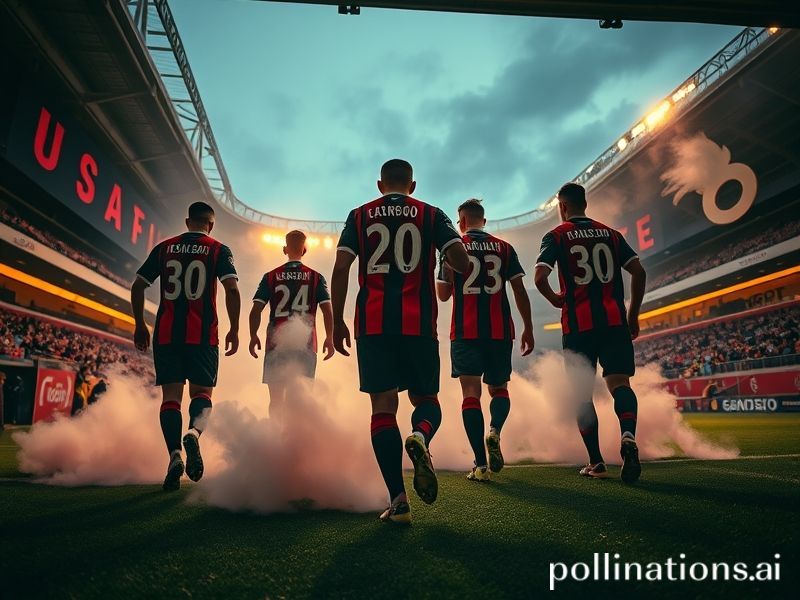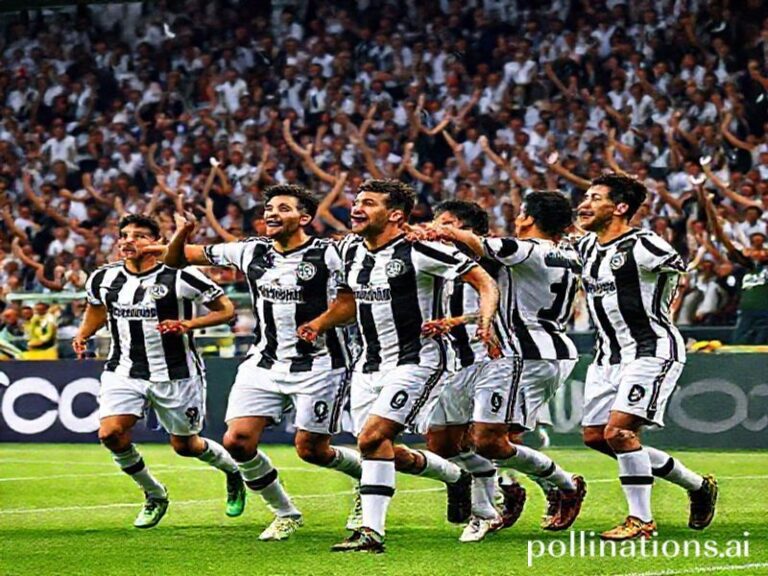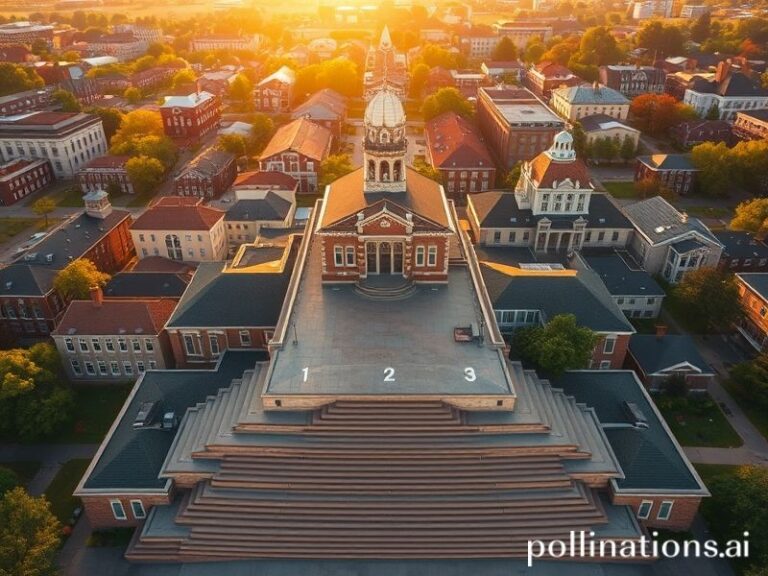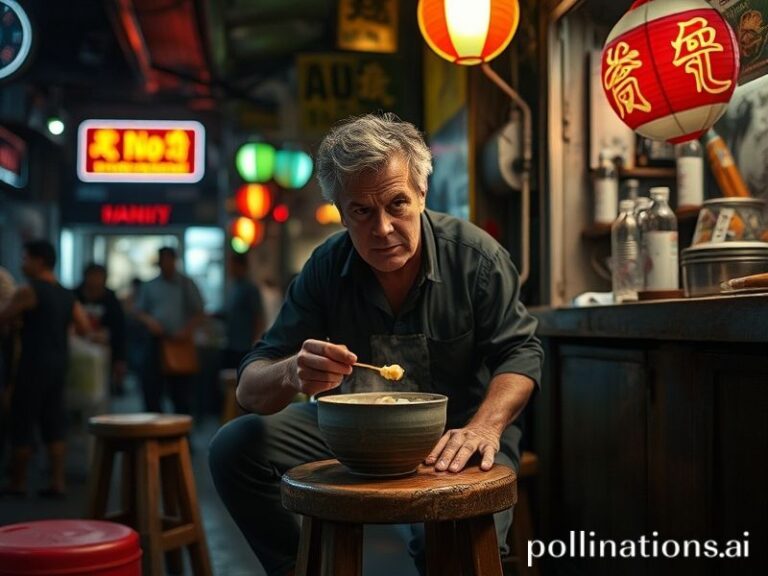AC Milan: The 124-Year-Old Global Circus Where Capitalism, Nostalgia and Football Collide
AC Milan and the Global Theatre of Meaningless Glory
By Our Man in the Cheap Seats, Somewhere Over the Atlantic
Somewhere between a Singaporean crypto-bro’s private jet and a Cairo Uber stuck in Ramses Square, the phrase “AC Milan” still lands like a well-aimed throwback Thursday. It’s not just football; it’s a multi-national coping mechanism, a brand-therapy session for people who can’t quite admit that adulthood is mostly waiting in line. In Jakarta, a kid wears the 2023/24 away shirt—made, ironically, in the same Bangladeshi factory as the knock-off he almost bought—because the devil on the crest feels more honest than the angel on his government’s PR posters. Meanwhile, in Lagos, a betting syndicate treats Milan’s Champions League odds the way hedge funds treat US Treasury yields: a polite fiction everyone agrees to trade on until the music stops.
Zoom out and you realize Milan isn’t merely an Italian football club anymore; it’s a floating signifier in the global collapse of meaning. Elliott Management—yes, the same vultures circling Argentina’s debt like it’s an all-you-can-eat buffet—flipped the club to RedBird Capital for €1.2 billion, which sounds impressive until you remember that’s roughly the amount Apple recovers each quarter from the couch cushions in Cupertino. The transaction produced more think-pieces than goals last season, all of them agreeing the deal was either a masterstroke of American financial ingenuity or proof late-stage capitalism has started eating its own memorabilia. Both interpretations can be true; that’s the beauty of post-truth sport.
On the pitch, Milan’s current squad is a United Nations of hair gel: Leão’s Portuguese swagger, Pulisic’s American self-help grin, and Tomori’s Anglo-Nigerian calm that suggests he’s read Camus between training drills. Together they chase a scudetto that, in the grand scheme of melting ice caps and AI-generated pop stars, feels about as vital as a poetry slam in Aleppo. Yet every weekend, millions of humans—stockbrokers in Shanghai, baristas in Bogotá, civil engineers in Warsaw—postpone their existential dread for 90 minutes to watch 22 millionaires pantomime hope. If that’s not global resilience, I don’t know what is.
The geopolitical echo is hard to ignore. When Milan plays Inter in the Derby della Madonnina, it’s not just city bragging rights; it’s a proxy war between American private equity and Indonesian petrodollars, staged inside a stadium that Mussolini once commissioned to flex architectural testosterone. The ultras still light flares, of course, because nothing says anti-establishment like setting fire to €3.50 worth of Chinese pyrotechnics. Meanwhile, Serie A’s broadcast rights are packaged and repackaged so many times that a farmer in rural Vietnam ends up watching the match on a feed bounced through Luxembourg satellites owned by a Qatari consortium that also advertises halal mortgages. Try explaining that to Giuseppe Meazza’s ghost.
Off the field, Milan’s fashion crossovers drip with the same self-aware irony. The club’s collaboration with Off-White produced a €900 bomber jacket that looks like it lost a fight with a highlighter. It sold out in 17 minutes, mostly to people who will never set foot in San Siro but need authentic despair for their Instagram grid. The irony, naturally, is that the jacket was probably sewn by someone who earns in a month what the average Rossoneri season-ticket holder spends on parking per game. Somewhere, Karl Marx updates his TikTok.
And yet, cynicism has its limits. Last April, when Milan overturned a two-goal deficit against Tottenham, my WhatsApp lit up like a Christmas tree in July: a Syrian refugee in Berlin, a Canadian diplomat in Nairobi, an ex-girlfriend in Buenos Aires who still hasn’t returned my hoodie. For three surreal minutes, we were all 12 years old again, convinced that comebacks were metaphysically possible. Then the final whistle blew and the world remembered it was 2024—elections to rig, oceans to acidify, influencers to cancel. But the residue lingered, a stubborn reminder that even in late capitalism’s haunted theme park, some illusions refuse to die.
So here’s to AC Milan: a 124-year-old contradiction wrapped in carbon-fiber kits and hedge-fund spreadsheets, peddling nostalgia to a planet that’s running out of future. May their victories stay meaningless, their defeats stay photogenic, and their jerseys stay just affordable enough to keep the delusion alive—because if we can’t believe in a football club, we might accidentally start believing in each other, and heaven knows where that would end.







